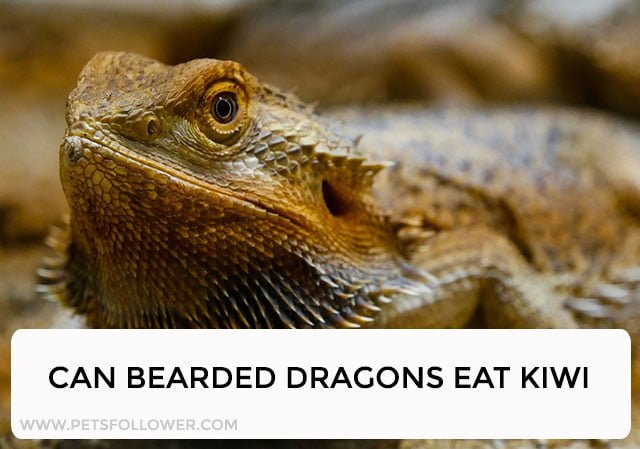Many pet owners wonder if their bearded dragons can safely enjoy strawberries. Bearded dragons can eat strawberries, but they should be given in moderation due to their high sugar content. This fruit can offer some nutritional value, but it’s essential to balance it with other foods.
Knowing what fruits are safe and healthy for these reptiles is crucial for their diet. Strawberries provide some vitamins and hydration, but overfeeding them can lead to health issues. Understanding the right amount and preparation for strawberries will help keep a bearded dragon happy and healthy.
In this article, the benefits and risks of feeding strawberries to bearded dragons will be explored. This includes how often these tasty treats can be offered and how to prepare them properly for a pet’s diet.
Bearded Dragon Dietary Basics
Understanding the dietary basics for bearded dragons is essential for their health. Proper nutrition influences their growth, energy levels, and overall well-being.
Nutritional Needs
Bearded dragons require a balanced diet that meets their changing nutritional needs as they grow. Their diet consists of proteins, vitamins, and minerals. The key components needed include:
- Protein: Important for growth, especially in young dragons. They need high protein intake from insects.
- Vitamins: Essential for immune system support. These can come from leafy greens and fruits.
- Calcium: Crucial for bone health. A calcium supplement is often necessary, especially for adult dragons.
The proportions of these nutrients change with age. Juveniles consume more insects and require higher protein, while adults benefit from more plant matter.
Typical Diet Composition
The typical diet composition varies with age. Here’s a breakdown of their dietary needs:
- Juvenile Bearded Dragons:
- 80% Insects
- 20% Fruits and Vegetables
- Adult Bearded Dragons:
- 20% Insects
- 80% Fruits, Vegetables, and Greens
For adults, greens like collard and mustard greens should form the bulk of the diet. Fruits, such as strawberries, are great for treats but should be given in moderation.
This varied diet helps keep bearded dragons healthy and nourished, making it vital to monitor and adjust their feeding as they mature.
Understanding Bearded Dragons and Fruits
Bearded dragons are omnivorous reptiles, meaning they eat both plants and animals. Fruits can play a role in their diet, but it is important to know which fruits are safe and how often to offer them.
Role of Fruits in Their Diet
Fruits provide vitamins, minerals, and water that can help keep bearded dragons healthy. Some safe fruit options for bearded dragons include strawberries, blueberries, and apples.
When introducing fruit, it is essential to chop it into small, manageable pieces. This prevents choking and makes it easier for the dragon to eat. Fruits should not make up the bulk of their diet; they should be a small part. Fresh vegetables and protein sources, like insects, are the primary components of a balanced diet.
Frequency of Fruit Intake
Fruits should be offered in moderation. While they are a tasty treat, high sugar levels in fruits can cause health issues if consumed too often. For bearded dragons, fruits can be given once a week as a special snack.
It is crucial to monitor how individual dragons react to new fruits. Some might enjoy certain fruits while others might not. Always observe for any signs of digestive upset or allergic reactions after introducing new foods. Adjust the fruit variety and frequency based on their needs and preferences.
Health Benefits of Strawberries for Bearded Dragons
Strawberries can be a delightful treat for bearded dragons, providing various health benefits. These benefits come from their rich vitamin content and high hydration levels. Understanding these advantages can help pet owners make informed dietary choices for their reptiles.
Vitamins and Antioxidants
Strawberries are packed with essential vitamins that support a bearded dragon’s health. They contain vitamin C, which is vital for the immune system. A strong immune system helps prevent illness and keeps them active.
Additionally, strawberries provide vitamin A. This vitamin is crucial for proper growth, skin health, and vision. These vitamins contribute to overall well-being and vitality.
Antioxidants are another important aspect of strawberries. They help fight free radicals in the body, reducing oxidative stress. This can lead to a healthier and longer life for bearded dragons.
Hydration and Fiber Content
Strawberries are about 91% water, making them an excellent source of hydration. Proper hydration is essential for all reptiles, including bearded dragons. It helps maintain bodily functions and supports digestion.
The fiber in strawberries also plays a significant role. Keeping a bearded dragon’s digestive system healthy is vital for their nutrition. Fiber helps regulate digestion and can prevent constipation.
Incorporating strawberries into the diet can help ensure bearded dragons receive these hydration and fiber benefits. However, moderation is key to avoid any digestive issues.
Risks to Consider When Feeding Strawberries
Feeding strawberries to bearded dragons can pose certain risks. It is important to understand the sugar content and potential pesticide exposure that may affect their health.
Potential Sugar Content Issues
Strawberries are naturally sweet, meaning they contain a significant amount of sugar. Bearded dragons have a diet that requires low sugar intake. Feeding them strawberries too often can lead to obesity and other health problems.
It is recommended to offer strawberries as an occasional treat. Adult bearded dragons should be given one strawberry per week. Younger dragons may only need half or even a quarter. By limiting their sugar intake, owners can help maintain their pet’s health.
Pesticide Exposure Risk
Another concern with strawberries is the potential for pesticide residues. Strawberries often have high pesticide levels, which can be harmful to reptiles. Always wash strawberries thoroughly before feeding them to ensure they are free from harmful chemicals.
Purchasing organic strawberries may help minimize this risk. This option reduces exposure to harmful pesticides, making it a safer choice for feeding bearded dragons. Awareness of these risks is crucial to keeping pets healthy.
Preparation and Serving Techniques
Preparing strawberries properly is essential for the health of bearded dragons. Clean fruits and appropriate serving sizes will help ensure a balanced diet. Below are important methods for washing and serving strawberries.
Proper Washing Methods
Before feeding strawberries to a bearded dragon, proper washing is crucial. This helps remove pesticides, dirt, and bacteria that can be harmful.
- Thoroughly Rinse: Start by rinsing the strawberries under cool, running water for at least 30 seconds. This will help remove any contaminants on the surface.
- Use a Brush: For added safety, use a soft vegetable brush. Gently scrub the surface of the strawberries to ensure all dirt is removed.
- Peeling: Peeling strawberries is not necessary, but some owners prefer to do it. This can reduce exposure to any residual pesticides.
- Drying: After washing, pat the strawberries dry with a clean towel. This helps prevent excess moisture, which could cause spoilage.
Serving Size and Frequency
When serving strawberries to a bearded dragon, moderation is key. Although strawberries are safe, they contain natural sugars.
- Serving Size: Offer a small piece of strawberry, about the size of a fingernail. This prevents overfeeding and helps monitor the dragon’s intake.
- Frequency: Limit servings to once a month. Too much fruit can lead to health issues such as obesity or digestive problems.
- Introduce Slowly: If it’s the first time feeding strawberries, introduce them slowly. Observe the bearded dragon for any signs of discomfort or allergic reaction.
By following these preparation and serving techniques, owners can ensure their pets enjoy strawberries safely.
Safe Feeding Practices
Proper feeding practices are essential for the health of bearded dragons. Understanding allergies and monitoring for adverse effects can help ensure they enjoy strawberries safely.
Identifying Allergies and Intolerances
Bearded dragons can have food allergies or intolerances, just like any pet. Signs of a reaction can include diarrhea, lethargy, or skin irritation. When introducing strawberries, it is crucial to start with a small amount.
If the pet shows any negative reaction, stop feeding the fruit and consult a vet. Always observe a dragon’s response:
- Behavior Changes: Watch for unusual behavior, like hiding or staying inactive.
- Digestive Issues: Monitor for loose stools or vomiting.
Keeping a record of foods each dragon eats can help identify any trends over time.
Monitoring for Adverse Effects
After offering strawberries, it’s important to watch for any adverse effects. Dragons may react differently to new foods, and vigilance helps catch issues early.
Key things to monitor include:
- Eating Habits: If the dragon refuses food for a day, this could signal a problem.
- Physical Changes: Look for signs like swelling or rash after consumption.
When strawberries are fed, limit them to 1-2 medium strawberries per week as a treat, ensuring they stay a small part of their diet. If any negative symptoms are noticed, consulting a veterinarian is advisable.
Alternative Fruits and Vegetables
Bearded dragons benefit from a varied diet. While strawberries can be enjoyed in moderation, there are many other safe fruits and vegetables that can provide essential nutrients and keep mealtime interesting.
Safe Fruit Options
Several fruits are suitable for bearded dragons. Here are a few options:
- Mango: Rich in vitamins A, C, and E, mango can be served peeled and chopped into small pieces or pureed for easy consumption.
- Papaya: This fruit helps with digestion and is high in vitamins. Serve it fresh and cut into small cubes.
- Blueberries: Packed with antioxidants, blueberries can be offered as a treat. They should be given in small amounts.
- Pears: High in fiber, pears should be thinly sliced or pureed without the skin.
Always remember to introduce new fruits gradually to monitor for any reactions.
Vegetable Recommendations
Vegetables are an essential part of a bearded dragon’s diet. Here are safe choices:
- Collard Greens: Full of calcium and vitamins, they can be a daily staple. Chop them finely for easier eating.
- Carrots: Rich in beta carotene, carrots can be shredded and mixed with other vegetables.
- Squash: Both zucchini and yellow squash are nutritious options. They can be sliced and steamed or raw.
- Bell Peppers: Colorful and tasty, these provide good vitamins. They should be chopped into small pieces.
A mix of vegetables ensures balanced nutrition and promotes good health for bearded dragons.
Frequently Asked Questions
Bearded dragon owners often have common questions regarding the safe consumption of strawberries. Here are detailed answers to some of the most frequently asked inquiries.
Are raw strawberries safe for bearded dragons to consume?
Yes, raw strawberries are safe for bearded dragons. These fruits are soft and easy for them to eat. However, moderation is important due to their acidity.
What quantity of strawberries can I safely feed my bearded dragon?
A healthy bearded dragon can safely eat 1-2 medium strawberries each week. This amount helps to balance their diet without overloading them on acidic fruits.
Can I give my bearded dragon strawberry leaves as part of its diet?
Strawberry leaves can be given to bearded dragons. The leaves provide additional nutrition and do not pose a choking hazard.
What are some other fruits that are safe for bearded dragons to eat besides strawberries?
Other safe fruits include blueberries, raspberries, and mangoes. Each of these fruits can be offered as occasional treats and should be prepared properly for easy consumption.
Are there any fruits that are harmful to bearded dragons?
Yes, there are several fruits that can be harmful. Fruits like citrus (oranges and lemons) and avocados should be avoided due to their high acidity and toxicity, respectively.
Can bearded dragons have a mixed fruit diet including strawberries and other berries?
Bearded dragons can have a mixed fruit diet. Combining strawberries with other safe fruits can provide variety. It’s important to monitor the total amount and ensure balance in their overall diet.





